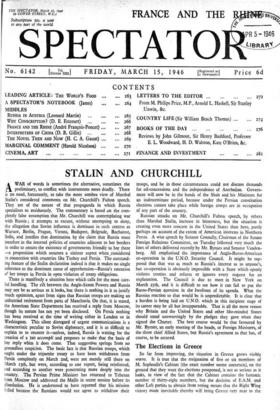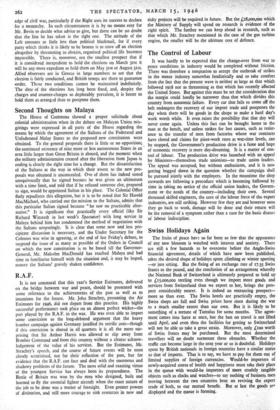The Elections in Greece So far from improving, the situation
in Greece grows visibly worse. It is true that the resignation of five or six members of M. Sophoulis's Cabinet (the exact number seems uncertain), on the ground that they want the elections postponed, is not as serious as it looks, in view of the fact that the Cabinet contains the fantastic number of thirty-eight members, but the decision of E.A.M. and other Left parties to abstain from voting means that the Right Wing victory made inevitable thereby will bring Greece very near to the
edge of civil war, particularly if the Right uses its success to declare for a monarchy. In such circumstances it is by no means easy for Mr. Bevin to decide what advice to give, but there can be no doubt that the line he has taken is the right one. The attitude of the Left amounts to little less than political blackmail, for if every party which thinks it is likely to be beaten is to stave off an election altogether by threatening to abstain, organised political life becomes impossible. There is, moreover, not the smallest prospect that if it is considered inexpedient to hold the elections on March 31st it will be any more expedient to hold them on May 31st or August 31st. Allied observers are in Greece in large numbers to see that the election is fairly conducted, and British troops are there to guarantee 'order. Those two conditions cannot be maintained indefinitely. The date of the elections has long been fixed, and, despite the charges and counter-charges so deplorably prevalent, it is better to hold them as arranged than to postpone them.



























 Previous page
Previous page